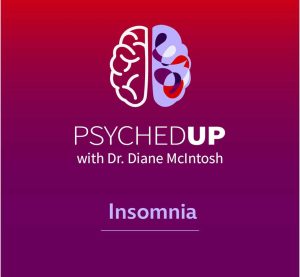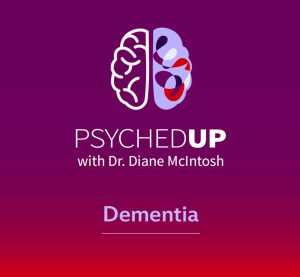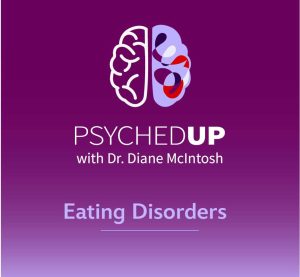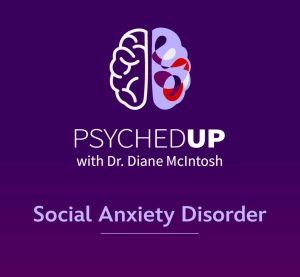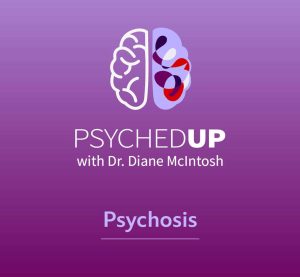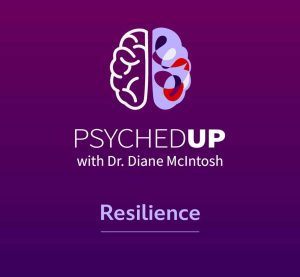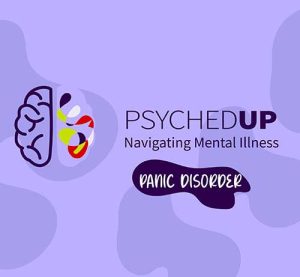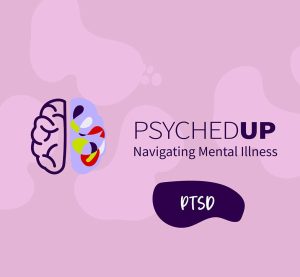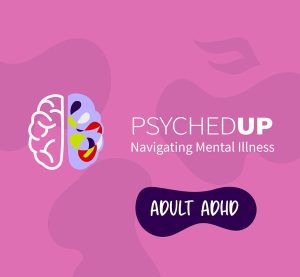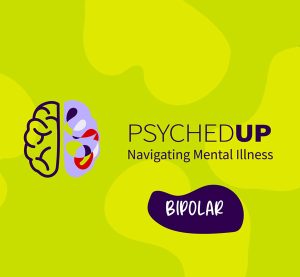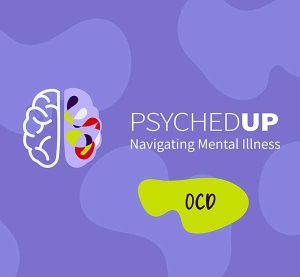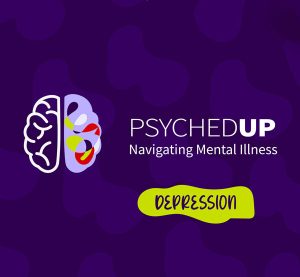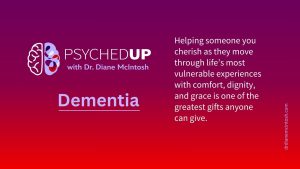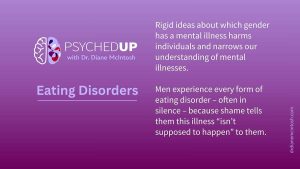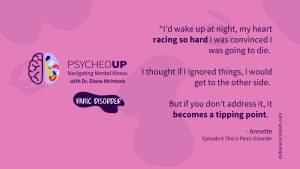
Eating Disorders

These are Eating Disorders
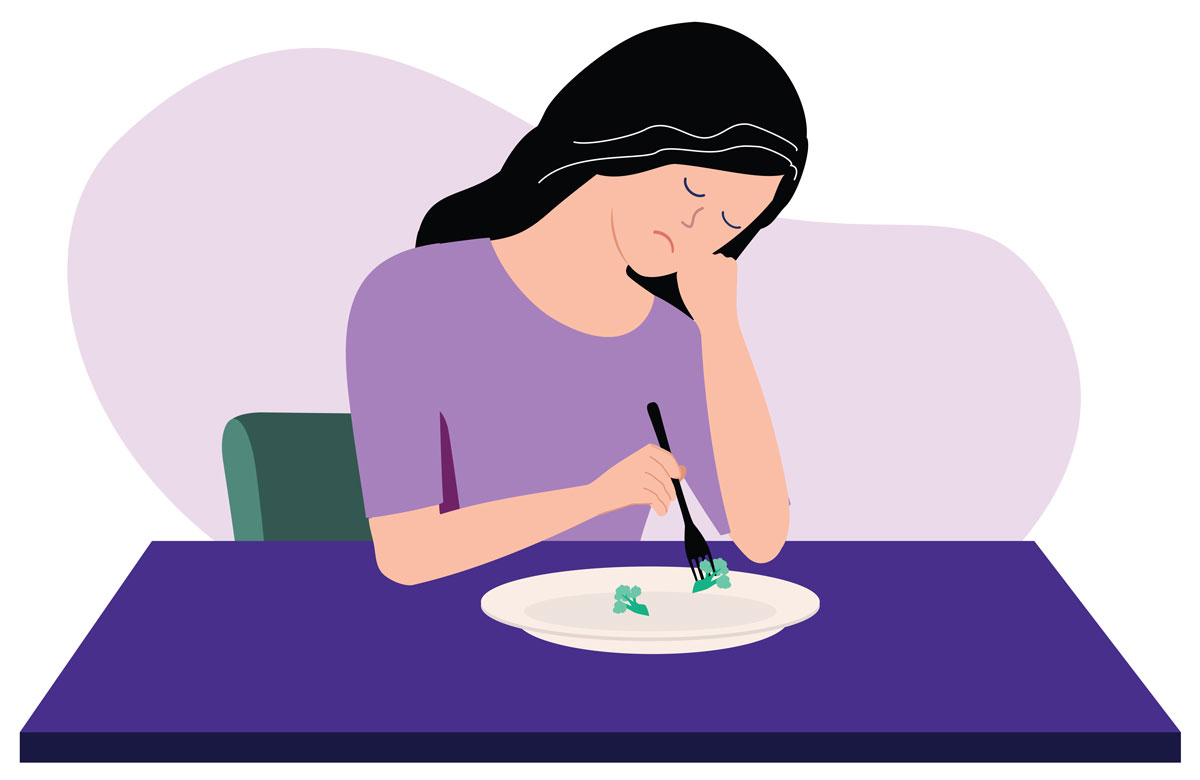
Part of the disorder is wanting it to be so secret… I insisted on seeing the doctor on my own and hiding this from my parents.
At just 10 years old, Cedar walked into her doctor’s office asking for weight loss recommendations, despite being dangerously underweight. Her perception of herself, together with her desperate need for control, marked the beginning of a decade-long battle with anorexia nervosa.
In this episode of PSYCHEDUP, Dr. Diane McIntosh pulls back the curtain on eating disorders, exposing how these devastating illnesses have little to do with food and everything to do with control and trauma.
Dr. McIntosh teams up with psychologist Dr. Randy Mackoff to explore the complex treatment landscape for anorexia nervosa, bulimia nervosa, and binge eating disorder. Together, they challenge common myths around eating disorders, examine social media’s role in exacerbating body image issues, and explain why psychological inflexibility and rigid thoughts about self-worth create dangerous patterns. This episode offers hope for those trapped in any cycle involving food restriction, over exercising, and binging and purging, while providing essential guidance for the families desperately trying to support them.
Listen, rate + share Eating Disorders on your favourite podcast platform:
Thinking of suicide or worried about someone you know? Call or text 9-8-8, toll-free, anytime, for support.

PODCAST GUEST
Dr. Randy Mackoff, PhD
Registered psychologist
Dr. Randy Mackoff is a registered psychologist in British Columbia. He has a private clinical practice where he provides psychological treatment for a wide range of issues, including but not limited to depression, anxiety, PTSD, coping with psychosis, and marital therapy. He is a retired Professor in the Criminology Department at Douglas College and a past Chairperson of the Criminology Department. He is a Clinical Associate in the Clinical Psychology Department at Simon Fraser University, providing clinical supervision to graduate students. He currently consults with law enforcement agencies in Crisis Negotiations, Undercover Operations, Witness Protection, Psychological Support for witnesses, Source Suitability, Major Crimes, Recruiting, and Human Resources. He is a designated Vancouver Police Department Psychologist and represents them at the Major Cities Chiefs Association Psychology meetings. He is the Co-Chair of the Psychology Committee for the Canadian Association of Chiefs of Police (CACP).
More About Eating Disorders
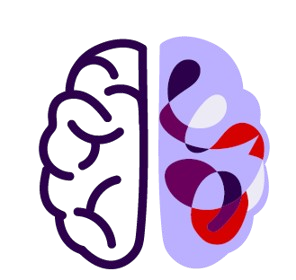
Eating disorders are serious mental illnesses that go far beyond food or body image, they reflect deep struggles with control, self-worth, and emotion. The most common types include:
- Anorexia nervosa – involves intense food restriction and a distorted body image that leads individuals to see themselves as overweight even when they are dangerously underweight.
- Bulimia nervosa – marked by cycles of binge eating followed by “purging” behaviors, such as vomiting, fasting, or excessive exercise, in an effort to compensate.
- Binge eating disorder – where people regularly consume large amounts of food, often in secret and to the point of physical discomfort, followed by deep guilt or shame. Unlike bulimia, binge eating disorder is not associated with purging behaviours.
These disorders can affect anyone, regardless of sex or body size, and are often driven by complex psychological factors.
Eating disorders are among the most destructive of all mental illnesses. They can affect every part of a person’s life, body, mind, and relationships. Physically, they may cause extreme weight changes, fatigue, dizziness, heart complications, and even organ failure. Psychologically, they’re marked by obsessive thoughts about food, body image, and control, often paired with intense guilt and shame.
Anorexia Nervosa: Symptoms include low energy, significant weight loss, obsessive calorie counting, and a sense of control tied to self-denial and restrictive behaviors around food.
Bulimia Nervosa: People with bulimia may maintain a normal weight, masking intense shame, anxiety, and a preoccupation with food and body image. Physical signs can include swollen glands and dental erosion from vomiting.
Binge Eating Disorder: Symptoms include feeling unable to stop or regulate how much is consumed, eating rapidly, sometimes until feeling painfully full, eating alone due to embarrassment, and experiencing feelings of disgust or depression after binge eating.
Eating disorders are complex, but effective treatments exist, often combining medical, psychological, nutritional, and social support.
Therapy: Cognitive-behavioural therapy (CBT), interpersonal therapy (IPT), family therapy, and dialectical behaviour therapy (DBT) help address underlying thoughts, emotions, and relationships.
Nutrition: Nutritionists guide healthy eating, meal planning, and recovery-focused nutritional strategies.
Support: Peer and family groups provide connection, shared experiences, and coping strategies.
Medication: While no drugs specifically target anorexia or bulimia, medications can manage coexisting anxiety, depression, or impulse-control issues. Binge-eating disorder may respond to certain medications that help with impulse control.
Medical care: Regular check-ups and hospitalisation may be needed if weight loss or health complications are severe.
Self-care: Stress management, relaxation techniques, adequate sleep, social connection, and enjoyable activities support recovery alongside professional care.
- The Center for Addiction and Mental Health
- Canadian Mental Health Association
- Canadian Mental Health Association – British Columbia Division
- Mental Health Commission of Canada
- Government of Canada
- National Initiative for Eating Disorders
- Families Empowered and Supporting Treatment of Eating Disorders
- Anorexia and Bulimia Québec (ANEB)
Episode Highlights

0:40
The internal struggle: Cedar describes how her own thoughts feel like bullying, triggering shame and feelings of unworthiness.

3:50
Understanding anorexia nervosa: the difference between loss of appetite and the disorder’s persistent fear of weight gain and distorted self-image.

8:45
The mental tug-of-war: Cedar shares the conflict between wanting to cope through disordered behaviors and the fear of giving up the “control” they provide.

15:50
Treatment strategies: Diane and Randy discuss therapy, medication for comorbidities, family support, and creating a safe, blame-free environment.
Key quotes from the episode
“Part of the disorder is just wanting it to be so secret and I insisted on seeing the doctor on my own and hiding this from my parents.”
4:30
“In fact, anorexia nervosa has the second-highest death rate of any mental illness, mostly due to heart conditions and suicide.” 6:35
“I remember trying so hard to keep things a secret and to deny that this was going on for me. But a big part of going to the hospital was trying to get rid of that secrecy and really pushing me. And so I was both finding out how I was physically harming my body, but also just how many disordered thoughts were going on in my head” 7:03
“It’s important that parents get away from blame, and it’s important that we create supportive, nurturing environments to help people with whatever difficulties they’re experiencing.” 22:00
Other PSYCHEDUP Episodes
Feedback on the Podcast?

Psychiatric Guidance for Optimal Patient Care
Founded by Dr. Diane McIntosh, RAPIDS Health provides timely, effective clinical decision support for mental health diagnosis and treatment. Whether you’re a clinician or someone seeking help, we offer evidence-based, personalized treatment guidance tailored to each individual’s needs.


